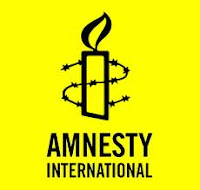 Ahwazi Arabs, Azerbaijanis, Baluch, Kurds and Turkmen, suffered ongoing systematic discrimination in law and practice. The use of minority languages in schools and government offices continued to be prohibited. Those who campaigned for greater political participation or recognition of minorities’ economic, social and cultural rights faced systematic threats, arrest and imprisonment Amnesty International said in its annual report.
Ahwazi Arabs, Azerbaijanis, Baluch, Kurds and Turkmen, suffered ongoing systematic discrimination in law and practice. The use of minority languages in schools and government offices continued to be prohibited. Those who campaigned for greater political participation or recognition of minorities’ economic, social and cultural rights faced systematic threats, arrest and imprisonment Amnesty International said in its annual report.Amnesty International said that In September, four Ahwazi Arabs held since June 2009 were reported to have been sentenced to death on charges including “enmity against God and corruption on earth”
"Around 20 Azerbaijani activists arrested in May around the anniversary of mass demonstrations in 2006 against a cartoon in a state-run newspaper which many Azerbaijanis found insulting were released in November. Akbar Azad, a writer, remained held as his family could not meet the high bail set.
Mohammad Saber Malek Raisi, a Baluch youth aged 15 from Sarbaz, was reported in July to have been held without charge or trial since September 2009, possibly to force his elder brother to surrender to the authorities. In December, 11 Baluch men convicted after unfair trials were executed in Zahedan, apparently in retaliation for the PRMI bomb attack five days earlier.
Kaveh Ghasemi Kermanshahi, a Kurdish human rights activist and member of the One Million Signatures Campaign, was held between February and May, including 80 days in solitary confinement. His trial on national security charges began in October.
In October, Arash Saghar, a Turkmen activist in the election campaign of Mir Hossein Mousavi, was sentenced to eight years in prison after being convicted of “spying for Turkmenistan” Amnesty said in its report on discrimination on ethnic minorities.
The authorities maintained severe restrictions on freedom of expression, association and assembly. Sweeping controls on domestic and international media aimed at reducing Iranians’ contact with the outside world were imposed. Individuals and groups risked arrest, torture and imprisonment if perceived as co-operating with human rights and foreign-based Persian-language media organizations. Political dissidents, women’s and minority rights activists and other human rights defenders, lawyers, journalists and students were rounded up in mass and other arrests and hundreds were imprisoned. Torture and other ill-treatment of detainees were routine and committed with impunity. Women continued to face discrimination under the law and in practice. The authorities acknowledged 252 executions, but there were credible reports of more than 300 other executions. The true total could be even higher. At least one juvenile offender was executed. Sentences of death by stoning continued to be passed, but no stoning were known to have been carried out. Floggings and an increased number of amputations were carried out Amnesty said last week.


No comments :
Post a Comment